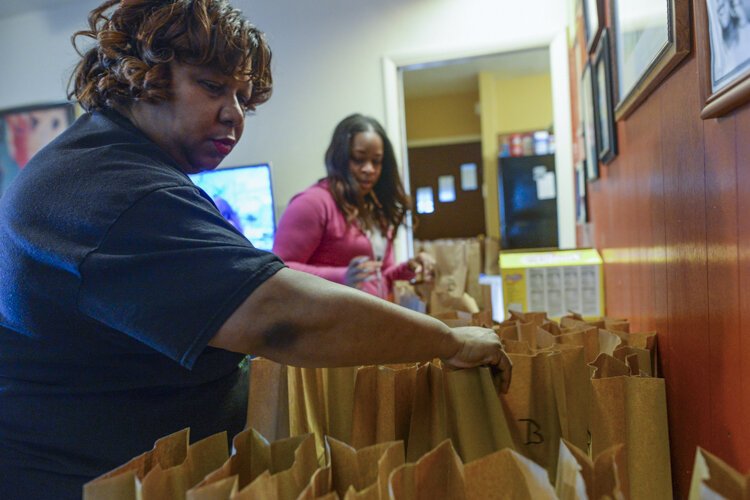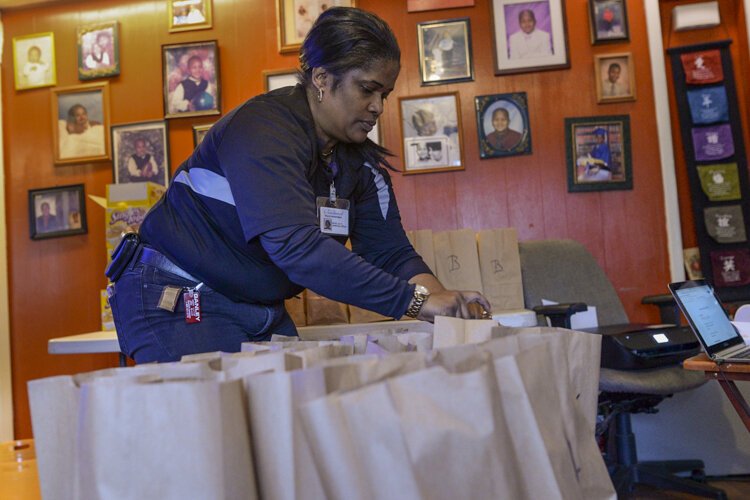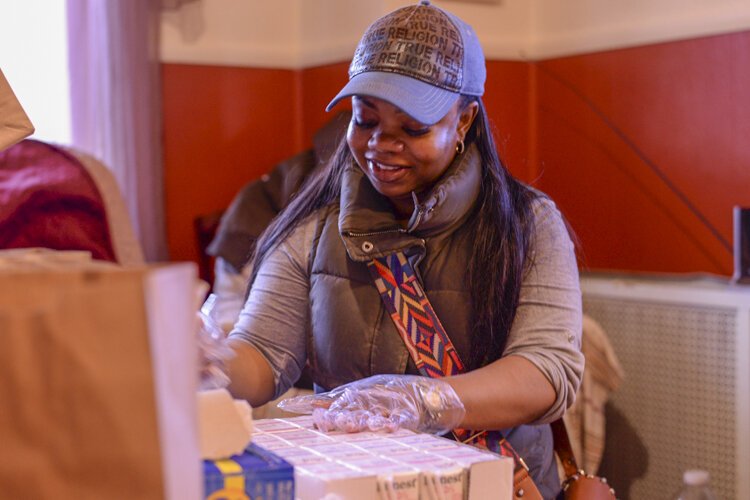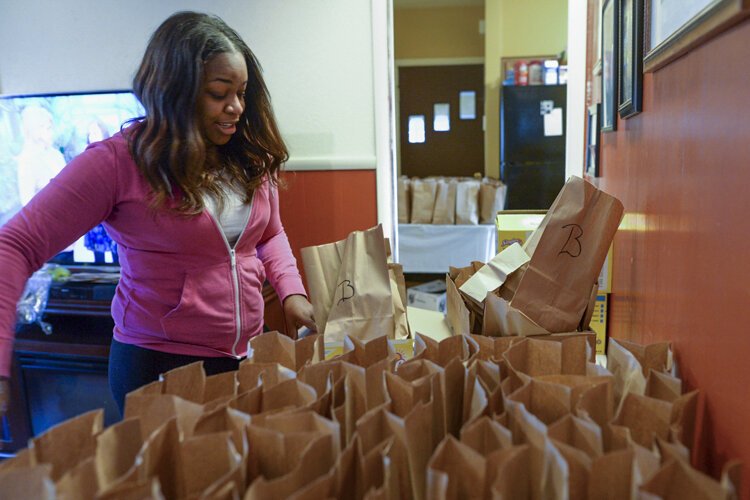Babies and Brunch delivers meals amidst coronavirus in Cleveland
Many restaurants might be closed for the foreseeable future in Cleveland, but Yvonka Hall’s home is not. In the past week, Hall, Ebony Spano, and Micayela Hall have transformed Yvonka’s Cleveland home into a launching pad for a new community initiative—Babies and Brunch—to help deliver food for families of out-of-school children.
The initiative was launched March 13, when the trio learned that the Cleveland Metropolitan School District would be closed for at least three weeks to reduce the spread of coronavirus. Shortly after, the school district announced that bagged meals would be available for pickup at 22 sites. Shuttle buses were also made available to transport residents to the sites.
However, the three women worried that the most vulnerable in their community would still face significant barriers in picking up the lunches. In a district where more than one in four children is food insecure, school lunches often play a crucial role in supporting a family’s nutritional needs.
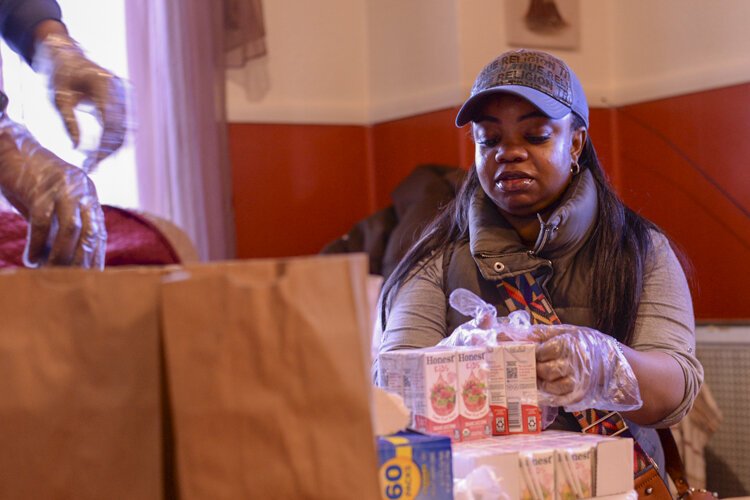 Babies and Brunch raised more than $2,000 in five days, and broadcast the food delivery service to their friends and community groups over social media.“The school lunch pickups are all held between 11:30 a.m. and 1 p.m., which is when most parents are working,” says Yvonka Hall, executive director of the Northeast Ohio Black Health Coalition. “A lot of parents aren’t going to be able to take off work to pick up a lunch.”
Babies and Brunch raised more than $2,000 in five days, and broadcast the food delivery service to their friends and community groups over social media.“The school lunch pickups are all held between 11:30 a.m. and 1 p.m., which is when most parents are working,” says Yvonka Hall, executive director of the Northeast Ohio Black Health Coalition. “A lot of parents aren’t going to be able to take off work to pick up a lunch.”
Many out-of-school children are being cared for by grandparents or neighbors who can’t or won’t leave home due to fears of the coronavirus or because of disabilities, Hall says.
“Imagine a grandmother who is taking care of four kids, one of whom has a disability,” she says. “How are they supposed to get four kids on a bus and into a school site? First, they’re told they should stay home to stay healthy. Then, they’re told they need to take their grandchildren to a school to get lunch. It’s confusing.”
Yvonka, Ebony, and Micayela designed Babies and Brunch to help address what they saw as a gap in services. The three raised more than $2,000 in five days, and broadcast the food delivery service to their friends and community groups over social media. In two days, they’d learned of more than 70 children who needed food assistance.
Now, the three women and other volunteers meet each morning in Yvonka Hall’s living room in Cleveland's Lee-Miles neighborhood. They pack bags with breakfast, lunch, and hand sanitizer, and deliver the meals to designated households. Some of the families have a child with a disability. Other families rely on caregivers who are elderly or disabled and therefore can’t make it to the school lunch pickup.
All households are texted ahead of time so that volunteers can drop the meals at the front door and leave. This minimizes the amount of face-to-face time that happens with each caregiver, thereby reducing the threat of transmission of the coronavirus.
The program holds personal significance for all three women. Spano is an autism ambassador for Autism Speaks, a national advocacy organization, and works for improved access to information and health services for African American families. She views Babies and Brunch as an extension of her advocacy.
Micayela Hall, no relation to Yvonka, similarly says the program was deeply connected to her role as a mother.
“When I thought about kids being out of school and not having anything to eat, it just kicked up my maternal instinct,” she says.
Yvonka Hall has long been an advocate and spokeswoman for her community. At the Northeast Ohio Black Health Coalition, she focuses on engaging African American communities around wellness, health, and social justice issues. She attributes her passion for meal preparation to growing up near her grandmother, who was often cooking and feeding people who couldn’t eat elsewhere.
“Everybody has a calling, but not everyone listens,” she says. “My calling is to make an impact on my community.
“When the system fails, it’s people who need to step in to fill the gap.”

